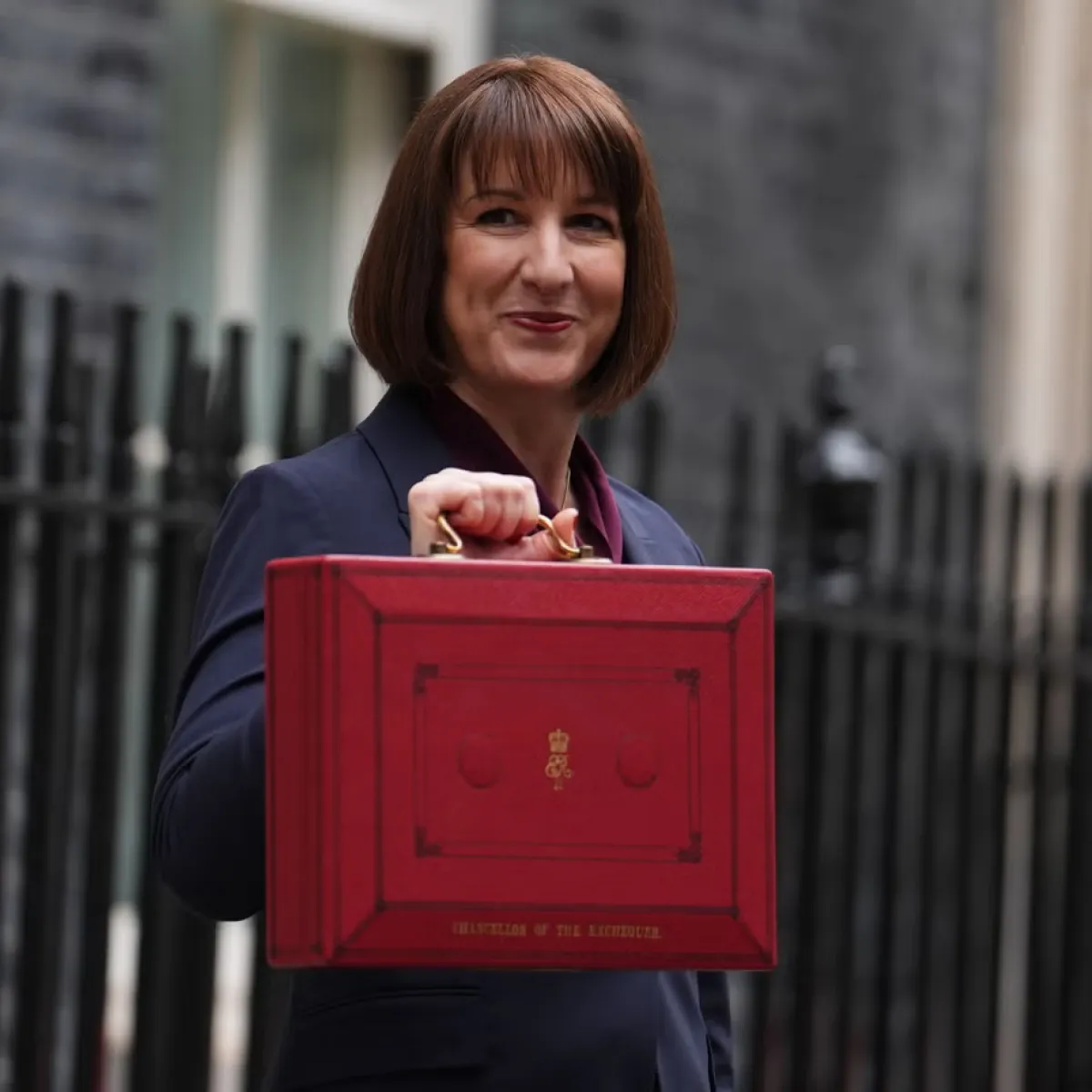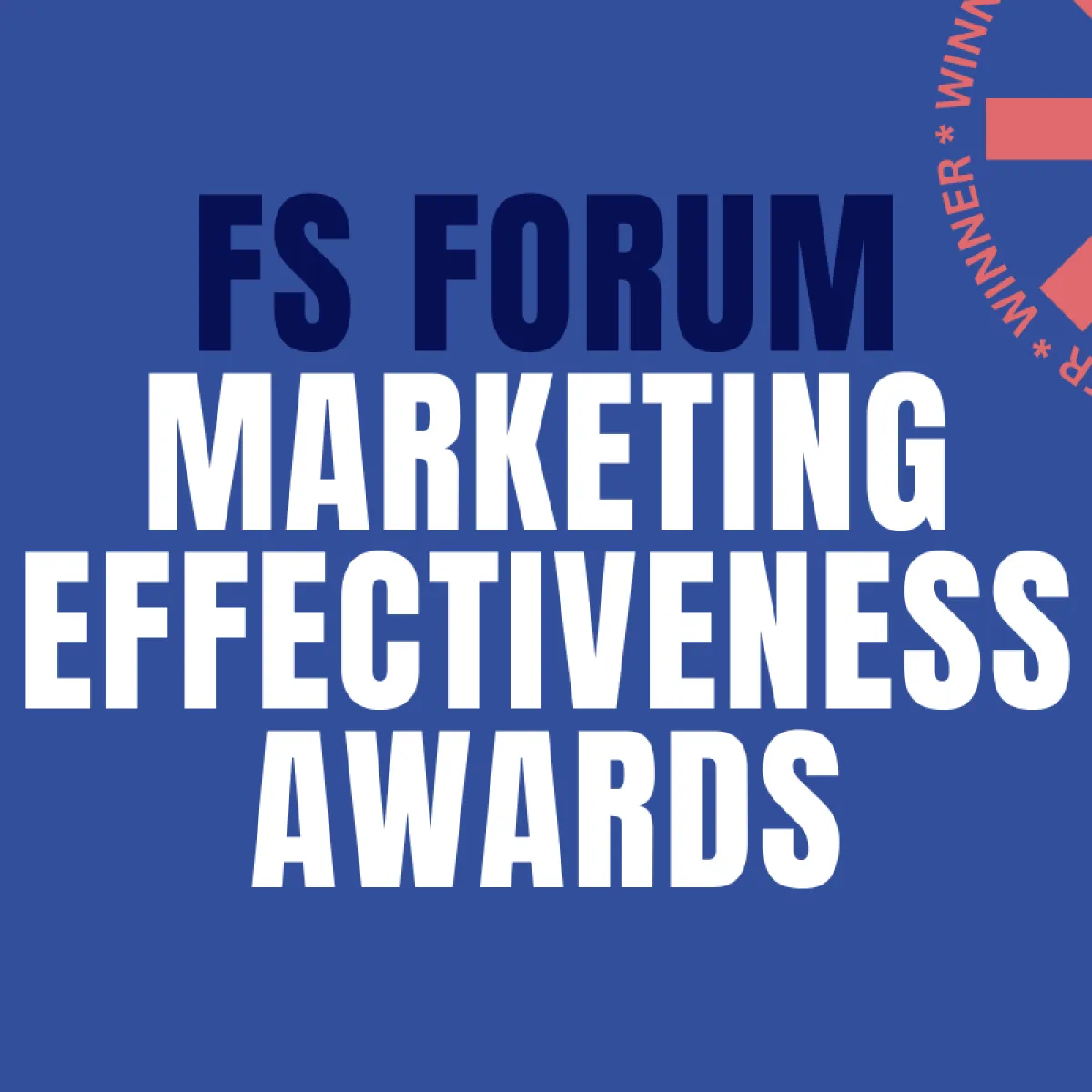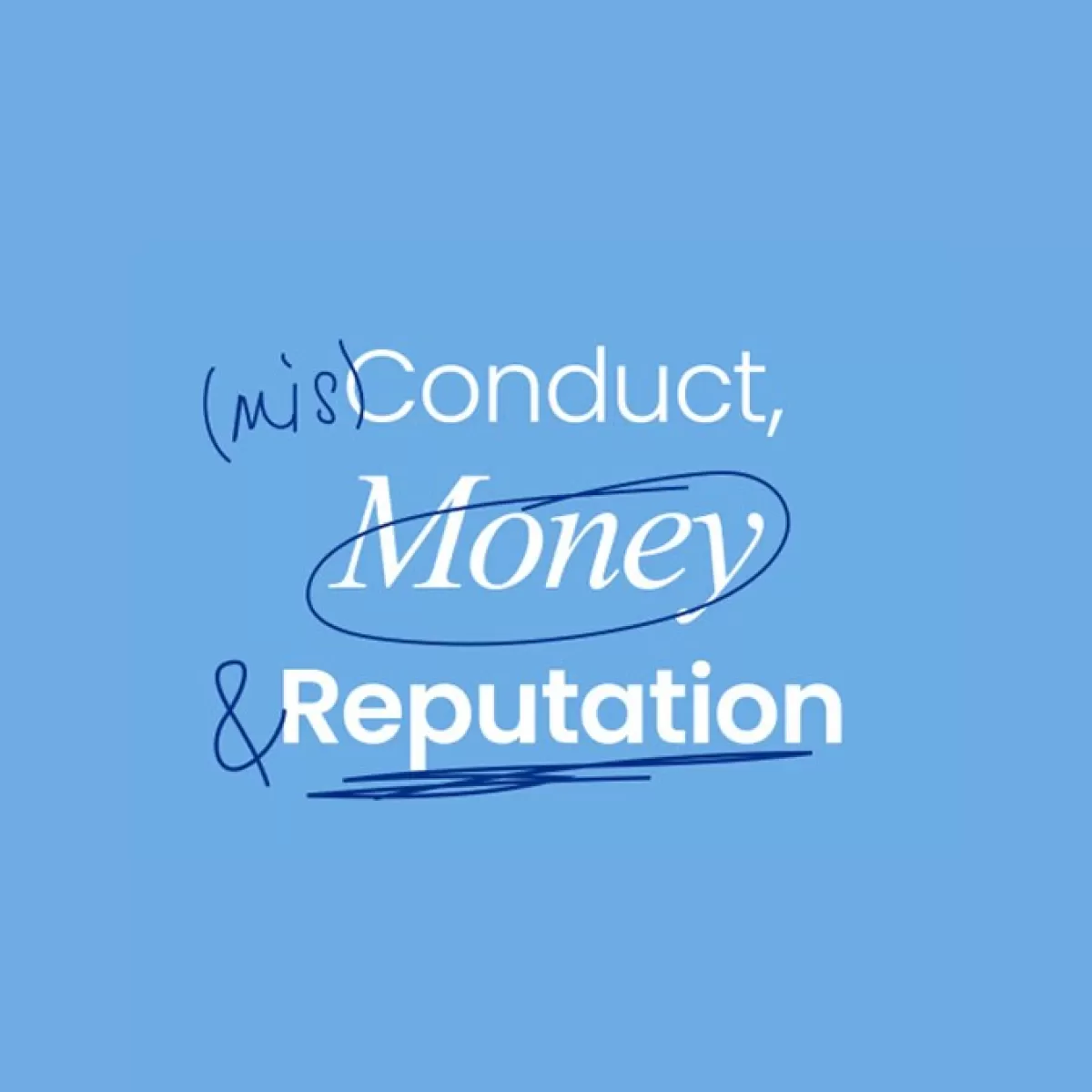This website uses cookies. Learn more
DWS, Sustainability & Disclosure
"A lot of these things can be done unconsciously, which I think is where it really begins to feel like a minefield for lots of firms. And there's so many pitfalls to fall into. But I think it comes back to just remembering that this is really hard, and often comms end up on the front line on this."

(mis)Conduct, Money & Reputation
Podcast Series by Lansons and Katten. Welcome to your monthly dissection of misconduct in financial services, from the rules and regulations - to the reputational fallout when things go wrong. This podcast series is an essential listen for those in asset management (and more broadly financial services) who are responsible for the safeguarding of business and brand; from compliance and corporate affairs to comms and marketing.
Listen via Spotify & Apple Podcasts
Episode Background
E02: DWS, Sustainability & Disclosure
ESG, and specifically sustainability, is an increasingly controversial topic for investment managers, with diverging regulation in Europe, the US and UK, and rising numbers of reputational hazards to navigate. Many fund companies are removing phrases like “ESG” and “sustainable” from product names, whilst downgrading the obligations that these funds have to the principles of ESG.
At the same time, it seems that many investment businesses have been overstating their sustainability credentials, and at least two firms have been fined over $25 million in recent years for making false claims.
In our second episode for the series, our hosts David and Neil are joined by Sam Sharpe, Sustainability Lead + Director at Lansons Team Farner, to explore the increasingly widespread issue of misconduct surrounding the 'E' in ESG.
From the companies that have fallen foul of the regulations and the regulatory trends, to the challenging act of maintaining a good reputation in an environment where ESG appears to have as many detractors as it has advocates.
Listen via Spotify & Apple Podcasts
Episode Transcript
David Masters: Hello and welcome to the episode. This is our second episode in a new series for those working in financial services, particularly in and around asset and wealth management, where we seek to navigate a path through some of the more complex issues where regulation and reputation intersect.
ESG, once a potential saviour, seems to be an area dense with both regulatory and reputational hazard.
My name is David Masters, director, and Asset Management lead at reputation consultancy Lansons Team Farner.
Neil Robson: And I'm Neil Robson, Financial Services Regulatory Compliance partner at international law firm Katten.
Sam Sharpe: And I'm Sam Sharpe, director, and Sustainability lead at Lansons Team Farner.
David Masters: So, to get us started, I just want to set the scene a little bit. ESG is a vast topic and it's very unlikely that we're going to cover everything that we could possibly do in the space of 25 minutes.
I also think that it's important that we start with a bit of a historical top-down perspective on ESG and its place in the investment industry, because it has always been a little bit controversial. There's always just been that little bit of tension between the needs of the ESG investor and the needs of the asset manager.
Without getting too much into the weeds, the original ESG portfolios largely tended to be exclusion based, for example sin stocks - so, firms, operating in the gambling or alcohol or tobacco sectors primarily.
So at the time that ESG was beginning to gain a little bit of momentum in the late nineties and the early 2000s is a time when a lot of these sin stocks were performing quite well. So very early on it became the mantra that by investing in ethical or sustainability or SRI type portfolios, you were going to be giving up on financial returns.
This raises the other factor. Funds are sold not bought. Although big ticket institutional investors obviously have substantial buying power and influence, the reality is that investment products are primarily sold, usually by some form of financial intermediary to a buyer.
And this ultimately has shifted behaviour away from the adoption of responsible investing principles because of this idea that when you invest in ESG, you're giving up returns.
And it's only in the last few years and boosted by regulatory and legislative shifts that ESG has approached any form of critical mass. And in fact, we now see it growing quite rapidly.
Now, I think we have to be fair to the asset management industry because not everyone has felt that way.
There are a number of managers over the years who did and still do believe that by investing along sustainable principles that you can outperform. I suppose in the UK, the best known of these is probably Hermes, now Federated Hermes, which was originally spun out of the BT pension scheme in the nineties and was in the early days was led by Alastair Ross Goobey, who was a major influence in UK governance principles and it's now led by Saker Nusseibeh, who again, this is very much one of the proponents of ESG investing on an alpha basis.
So, we can see that this has evolved quite dramatically over the last few years. And often it's regulatory developments which have been at the driving edge of this.
So, Neil, given that we now have three key regulators operating, so the UK, the EU and the US, what are the current regulatory developments that we really need to be aware of?
Neil Robson: Well, it's an interesting one because actually across the EU, the UK and the US, the principal driver of legislative provisions that asset managers and others are required by law to follow has actually been the European Commission.
The EU has been the driving force behind the majority of sustainability and ESG related legislation, but that's just part of a sort of a mosaic or a framework that we see on an international basis.
So, if you think about the three pillars of ESG. E for environmental, we've got a lot of sustainability reporting requirements. So, for example, in the UK, there's the Taskforce for Climate related financial disclosures TCFD, that listed companies and FCA regulated firms are going to have to comply with over the coming next year, two years as a result of that TCFD set of requirements being baked into the FCA's new ESG handbook.
Interestingly, at the moment, as it stands, the ESG handbook only relates to the TCFD, the sustainability disclosures.
In the EU things are very different.
There's a broad range of disclosures under the taxonomy regulation. The financial reporting requirements related to financial services firms are very broad in scope. If you're marketing a fund in the EU, you're going to have to make all sorts of additional disclosures, disclose whether you are an Article 8 or an Article 9 fund, which basically means are you light green? So, you take sustainability into account. Or are you dark green where it's actually a driver for your investment strategy.
We've also got the social pillar that ‘S’, which is about human rights and equity and diversity. That, of course, will also bring into account the relationships as to how an organisation works with regard to its people and the people in its supply chains.
So, diversity and equity yes, that's a given. But of course, we've also got something there to think about that like labour practices and the wider supply chain. If you're someone who's working elsewhere in the world, for example, the UK Modern Slavery Act requires that you know who you're dealing with and all those different countries.
So if you say you're ESG compliant or you take ESG into account in your investment strategies, there’s a vast range of legislation you have to think about. The big one of course that we're going to focus on in a little bit is that actually, if you claim you have ESG as part of your investment strategy, if you claim you have sustainability at the core of your practices, if you put that in a prospectus, if you put that in an offering document, both in the US, as we've seen most recently with an SEC enforcement action, but also here in Europe, if you say you're doing something and it's not true, you're liable to a fraud investigation or worse.
That's a pretty big deal because you've effectively lied in a public document.
Sam Sharpe: And to pick up on your point about, you can get into trouble for putting something in a public document that isn't true. I think what's interesting is how we've seen different bodies slap wrists over the recent year of not only companies putting things that aren't true but omitting things or not giving audiences or consumers the full picture.
Neil Robson: And if you are telling the public something, if you're using this as a marketing tool, you need to be quite clean and very open about what your position is.
Now in the financial services sector, there's actually a requirement that's been in FSA rules as long as I've been around. Obviously now in FCA rules and given the MiFID II rules across the whole of Europe, this piece of it was put into MiFID II by the UK before Brexit.
But if you are advertising a financial product or a financial service, you have to be both fair, clear and not misleading. That's the absolute standard across the UK and the EU.
So, I think that realistically that's a very, very hard target or standard to meet, but that is ultimately the requirement.
Sam Sharpe: Yeah, I completely agree. And when you're talking about what is effectively a two meter by one meter piece of paper where they're expected to get across the complexity of effectively a transition economy, it is a tough ask, but I think that open honesty is interesting because it's what's needed. It's what the regulators are pushing for. But I think it's a very difficult and vulnerable position for organisations to put themselves in.
Neil Robson: And it does beg the question whether we lawyers, unfortunately, are going to end up meaning that there's pages of disclaimers, maybe lines and lines of it in tiny font at the bottom of those posters, which might be the only way round it.
David Masters: I was going to bring in the investor at this point because I think the challenge here is also for the investor is understanding what the product they're investing in, is doing. And I think this has very much been the FCA's line of attack, isn't it.
Do investors understand what your fund is doing? Is your fund doing what it says it's doing?
And can investors tell whether your fund is doing what it's doing? So where to where does this leave them?
Neil Robson: Well, I think the fair, clear and not misleading requirement, it's a slightly sliding scale in the sense that if you're an institutional-only manager, so your fund can only take professional investors and eligible counterparties, not retail, then actually I think that you should be taking a view that your investors have a higher level of understanding.
But if you're focused on retail, then you have to be absolutely clear and not misleading as well as fair. But nonetheless, that's a slightly different standard. So, it's much more difficult, I think, for a retail focused firm.
David Masters: So, there are a number of companies which have been fined or challenged over the last few years. One of the most recent ones, I think was DWS. Neil can you just give us a bit of detail about really what happened there and what the sort of consequences are?
Neil Robson: Yeah, I mean, that one's been absolutely fascinating to follow. It stemmed from a whistleblowing disclosure from inside of DWS. So DWS was the investment arm of Deutsche Bank. Ultimately, it was investigated by both the US and German financial regulatory authorities because of whistleblowing disclosures from Desiree Fixler.
So, Ms Fixler was the former Head of Sustainability at DWS, and she whistle-blowed because she was very concerned that DWS had made misleading claims in its 2020 annual report, where they claimed that more than half of the group's $900 billion in AUM were invested following ESG criteria.
So, Ms Fixler claimed that was not factually correct.
She blew the whistle to the German regulator BaFin, and then BaFin did their investigation, which led to raids on both DWS itself and on its parent Deutsche Bank. Ultimately, it led to the resignation of Asoka Wöhrmann, who was the chief executive of DWS, he resigned in June last year. The public prosecutor's office in Germany then said, interestingly, and I'll read a quote here, ‘sufficient factual evidence emerged that contrary to the statements made in the sales prospectuses of DWS funds, ESG factors were not taken into account at all in a large number of investments.’
So that's quite interesting. What ultimately then happened is BaFin, the German regulator had an enforcement action against DWS. They alleged prospectus fraud because the statements made were false, misleading and were not factually correct. In the US because DWS is active there also, marketing various funds, the SEC, the Securities and Exchange Commission investigated, and they came to a broadly similar position. That being that DWS was making materially misleading statements about controls over ESG factors.
So that was quite fascinating. It was just in September 2023, that in fact DWS has settled with the SEC and agreed to pay $19 million to settle the charges the SEC had brought for materially misleading statements, effectively prospectus fraud. Which was the highest fee, or fine rather ever charged relating to environmental social governance factors against an investment adviser in the USA.
Now, what's fascinating here is that as whistleblower, Ms Fixler was fired by DWS. She was interviewed recently, and she said that she didn't regret anything about this whistleblowing because as an ESG specialist, sustainability boss of DWS, she said that ultimately it was an important factor for her to make sure that this became public.
David Masters: And again, it's a point we picked up on our previous podcast about the treatment of whistleblowers, but that's probably a podcast in its own right.
I think there are a couple of things here and I think it's really interesting because obviously what we're now beginning to get the sense of is that whilst all this has been going on, ESG funds have been witnessing inflows. Certainly outperforming other active managed funds and often at times outperforming in terms of inflows, passive funds as well.
But just very recently, we've started to see that drop away, not outflows, but the rate of growth has slowed.
And some of that, I think is down to greenwashing.
I think the AIC put out something very recently which was some research saying that investors were beginning to get wary about greenwashing. But this is a really difficult situation for investors because obviously the will is there, the desire is there for their capital to be put to good use.
But clearly, the more of these greenwashing scandals there are, it's the classic reputation management thing, the worse your reputation is, the less people will do business with you.
And the challenges for DWS and for those other firms who've come unstuck along the way are getting people to reengage with them. But I think now we see that it's probably not just a reputational issue. I think we can look at the current state of the economy, current persistent high inflation, high interest rates, meaning that that cash is a much more attractive investment for a lot of people.
But just to turn to you then, Sam, so we've talked about green washing as an issue, but there is some other sort of phrases out there which seem to be doing the rounds at the moment, which seem to be almost the antithesis of greenwashing.
So, what do things like greenhushing mean and who's doing them?
Sam Sharpe: Yes, and just to context some of those other phrases doing the rounds and pick up on what you just said. I think part of that negativity and debate and firms getting into trouble, partly stems from the fact that there is no universal agreement really over what this thing means. And to some it's risk mitigation. To some it's getting to some form of utopia.
The debate and controversy surrounding this, is also a sign that it's fully arrived, and it is huge and knotty and the biggest challenge we have ever faced.
So, we're not going to get it right and not every firm is going to get it right.
And I think when you when you look at greenwashing and now all the nuanced forms in which it's taking - so ‘Greenhushing’ as an example is where firms effectively clam up and hold back. And they might be doing great things behind the scenes, but they're not talking publicly about it.
To take another one such as ‘Greenshifting’. So particularly relevant when you were talking about manufacturing firms, firms with supply chains. If you're making a product, instead of focusing on the carbon footprint around how you manufacture and move sourcing ingredients for that product, you put the emphasis on talking about how an end user uses that. So, if it's soap for example, rather than talking about how you're making that soap, it's ‘well people should have showers rather than baths’ and ‘they should limit to how much hot water they use’.
A lot of these things can be done unconsciously, which I think is where it really begins to feel like a minefield for lots of firms.
And there's so many pitfalls to fall into. But I think it comes back to just remembering that this is really hard, and often comms end up on the front line on this.
Neil Robson: I think one interesting case or scenario we talk about is in that exact context - that it's hard. Firms can be trying to do the right thing, and yet you've still got the risk of trial by media.
So, this summer, Baillie Gifford, big UK asset management firm, were the sponsors of the Edinburgh International Book Festival. One of the key speakers was due to be, in fact the key speaker, was due to be Greta Thunberg. Who I understand was going to get a boat across to Scotland so that she didn't have to use too many CO2 emissions to get there.
But she pulled out when an investigation went public.
A freelance journalist publicised the fact that Baillie Gifford doesn't have an entirely green CO2-free investment portfolio. And the numbers here were fascinating because Baillie Gifford actually, I think in the big picture, isn't doing too badly compared to many others. They're pretty good.
So the numbers that were published, which led Greta Thunberg to pull out were that 2% of Baillie Gifford's investment portfolio companies, that’s 2% of 223 billion AUM, were in companies that get 5% or more of their revenue for oil and gas related activities.
Now part of that includes, for example, Tesco, because Tesco has obviously a petrol business. So, she pulled out, there was a lot of very bad PR, unfortunately for Baillie Gifford at that point in time. The fact that they invest vast majority of their 223 billion AUM, in non-CO2 producing businesses and investments, they still got knocked around by the media as a result of this.
So it's unfortunate. It's very hard and you kind of lead to the question ‘do you have to invest in nothing that produces CO2 in order to be held up as the poster child of ESG and avoid any risk of greenwashing?’
That's going to be pretty hard if you're a broad-based investor.
David Masters: Well, I think it is really hard, and I think there's this sort of plays into another quite substantial issue, which is if you look at this from the perspective of the investor, not all investor’s values are the same.
There is no archetypal ESG philosophy as far as investors are concerned. There might be in terms of how asset managers present what they do. We've moved now much more to what's called ESG integration.
But ESG integration has come with its own challenges because it's very much, if you like, because of this idea that funds are sold, not bought. It's the ‘build it and they will come’ mentality.
So I think a lot of the issues we're seeing with ESG today in particular, is that there is a conflict sometimes between what the asset managers can do and are doing, and what investors want.
So, if you like this, we'll call it ESG plurality. Where an investment manager might offer some funds which have an ESG focus and some which don't. But ultimately, more and more investors are taking the view that, ‘well if that investment manager is investing in fossil fuels outside of my portfolios, I don't want anything to do with them’.
And I think that is going to be a considerable challenge as ESG investment evolves and moves towards probably more along the lines of impact investing.
Sam Sharpe: I think that's a really interesting point. The balance point - if you start to see investors that have some ESG funds and some non. Because I think the word that sometimes gets lost in this whole discussion is transition.
It goes back to the Baillie Gifford point, in that whatever you consider good or not quite good enough, the aim is to effectively rewire our entire economies to one that is more sustainable for us to continue with the type of life we as a whole want to live. And I think if you start to lose what that sense of overall balance and transition is, it starts to get really quite difficult.
Neil Robson: So, we have a true minefield ahead of us here that if you're trying to disclose to investors how sustainable you are, how truly green your fund is, you've got a whole raft of things you're going to have to try and juggle at the same time to satisfy investors in different jurisdictions.
So ultimately, I think we're looking at a traditional fund prospectus with different wrappers for different countries making all sorts of additional disclosures.
As keen as a manager is to present itself as sustainable to meet those requirements that, okay, ‘this is our version of ESG’, you have to disclose, disclose, disclose. You're going to have to make everything crystal clear to avoid the risk of greenwashing, to avoid the risk of prospectus fraud or misleading statements.
So, I think in some ways, all of this is making asset managers jobs a thousand times more difficult.
David Masters: And that disclosure, that transparency is important because all the evidence about is that the more the investor understands what they can do, what their money can do and the power of their money, then the more demanding they become as investors.
And we've seen that the way that fees and charges have declined over the years and ultimately the fiduciaries become aligned to that thinking as well, which is why these sorts of trends around hyper personalisation are important.
Sam Sharpe: I think there is an interesting dilemma there about what firms are doing at fund level and actual products and what they're offering to investors, and then what they say they stand for as an overarching organisation and a firm.
And I think those of those two, there is quite often a bit of a disconnect and that's where they can get into a little bit of hot water as well. And there is a need for the clarity and honest discussion internally. So, what you are trying to achieve and to have, as you put it, the ‘bricks’ so that investors can build exactly what they want.
But you still need that piece as to what you stand for as an organisation and what you believe in on this.
I think it's something that in particular Lombard Odier have done very well for a long time. Which is, as they transitioned, what they were looking at from a fund and a product perspective and how they were working with clients and investors, they did really nail, in my opinion. That overarching piece whereby they came up with this acronym, ‘CLIC’ where everything we invest in is looking to be ‘Clean, Lean, Inclusive and Circular’. And those are the overarching principles by which ‘we will run the organisation, invest money, and that's the world we're trying to build’. Getting those two things right I think is hard but really important.
David Masters: Yeah, no, I think that's a really good point. And it again comes back to this sort of idea of purpose. So we have the purpose of the investor, but we also have the purpose of the asset manager, because the asset manager ultimately is the conduit through which that investor’s money gets into the market.
And I think those are really, really important principles.
Neil Robson: I mean, we've seen quite a few fund managers have their environmental mission statement. It's on their website, it's public. All their portfolio managers are required to adhere to it. If they are going to make an investment that's off-piste, it needs to be a damn good investment, otherwise, you're breaking your own mission to the public. Again, that then goes to – ‘have you engaged in false advertising effectively?’.
So, I think that where you do get managers who are prepared to jump feet first and say this is what we stand for - that's got to be a fantastic step forward, right?
David Masters: So that's all we have time for today. We'll be back next month where we'll be exploring further areas where reputation and regulation intersect in the world of asset and wealth management.
**
Disclaimer: The content in this podcast is for informational purposes only. It does not constitute legal advice and is not intended to establish an attorney-client relationship, nor is it intended to suggest standards of care applicable to attorneys in any given situation. This podcast is considered attorney advertising. Prior results do not guarantee a similar outcome. Any views, opinions or comments made by external guest speakers - are not to be attributed to Katten Muchin Rosenman LLP and/or Katten Muchin Rosenman UK LLP or their individual attorneys/lawyers. All rights reserved.
Stay in the loop with our experts




New Business: to find out how we can help you, contact our dedicated new businesss team consultancy@lansons.com
Careers: we’d love to hear from you, please visit our careers hub











